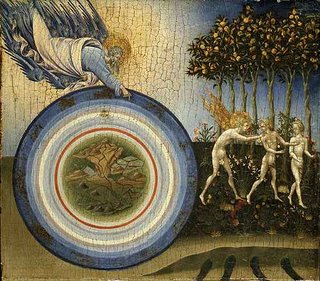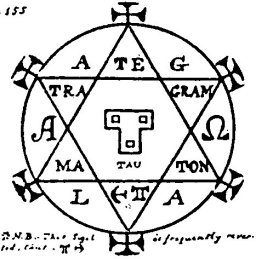Being the father of twins, I found these five points about parenting as an Orthodox Christian to ring true. I found these 'principles' in an article years ago. As turnabout is said to be fair play, I recently found them again being exposed by Leithart in the same original text! Here below is my rendition of these common sense points on parenting.
1. Children are sinners, not innocent and naturally good (Psalm 51:5; Romans 3:9-18). As Jesus said, infants and children are models of dependent faith. Yet, our children are also descended from Adam and therefore are corrupted by original sin. This condition characterises infants and children as well as adult sinners.
This innate corruption manifests itself in many ways. Crying is an infant’s only mode of communication, and it is not necessarily sinful; despite what Luther wrote in "Away in a Manger," Jesus in the manger did cry and yet was sinless. Yet, our infants do more than communicate with their cries. When only a few days old, infants cry to express their anger or impatience when their desires are not immediately fulfilled. Worse, descended from fallen Adam, our children resist anyone who tries to control or exercise authority over them. They invariably test the limits. When I said "No" to my 2 year-old son as he stretched out his hand to touch the computer keyboard, I could see on his face that he was debating whether or not to go ahead with his plans. Some children are less overtly rebellious than others, but all are rebels.
Most Christians believe in original sin, but often it plays little role in our parenting. We are reluctant to regard our children’s sin as sin. Instead, we make excuses for them. Very young infants, of course, have not learned the meaning of "No." Once they have learned that, however, we should not say of a disobedient child, "He doesn’t understand." When a child is uncooperative, we should not say, "Oh, he’s just tired." When children fight and treat one another cruelly, we should not say, "Boys will be boys." At other times, we refuse to believe that our children are capable of being as depraved as the Bible says they are: "Oh my child would never lie, steal, cheat, etc." But he would, and he does. We should recognise sin as sin and treat it as such. Circumstances might make children more prone to fuss and fight but circumstances are not an excuse for sinful behaviour. If your child has done something wrong, admit that it is a sin and give him the opportunity to confess it. Otherwise, you are training him to avoid responsibility. Thus, a corollary of this first notion is, don’t make excuses.
Also it poses a challenge to us as parents. Infants cannot raise infants. If you want your children to grow into mature adults, you have to act like an adult. Parents who make excuses for their own behaviour, who resist and rebel against those in authority over them, who follow whatever impulses pass through their heads, can hardly expect their children to behave differently.
2. You are the parents and they are the children. By this, I mean several things. As parent, you know better than your children what is good for them. They prefer sweets and ice cream to green vegetables, but you know that they need vegetables. You know that brushing their teeth is good for them, even if they do not understand that. You know they need a certain amount of sleep, so you set times for naps and bed.
Being the parent also means that you set the rules. Of course, we need to make sure that the rules are fair and biblical. If parents make up rules as they go, children can never know when they have broken the rules, and they will become frustrated. Children should see that parents too are under rules, that we cannot make up whatever rules we like. The fundamental rule to teach very young children is the fifth commandment: "Honour your father and mother." Every instruction or command from a parent becomes a rule because it comes from the parent.
Being a parent also means that you enforce the rules of the house and make sure the children live within the structures you set up. This is perhaps the most frequent failing for parents, especially new parents. We tell our son he needs to finish his vegetables before he has ice cream, but he complains and we eventually give in. We tell our daughter to go to bed, and in five minutes she is back in the lounge asking for a teddy bear. We tell a child to come, but he runs in the other direction.
This pattern produces enormous stress on parents and children. Parents get more and more frustrated and angry because their children do not listen, and children bear the brunt of the parents’ frustration. But parents often bring frustration upon themselves. In the short run, it takes some extra energy to make sure that children follow our instructions. In the long run, it is much easier on both parents and children if parents to follow through with their instructions and enforce the rules from an early age. Laziness is the main reason we do not follow through. And laziness is sin. If we have told our son to finish his vegetables, we need to make sure he does, even if this means spooning them into his mouth or leaving them for next morning’s breakfast. If we insist that he finish his vegetables before he eats anything else, he will eventually be hungry enough to eat broccoli, asparagus, and mushroom soup. If we send our daughter to bed, she should be required to stay there. If you tell your child to come to you and he does not, do not say it again, do not beg, coax, bribe, threaten, or count to three. Go get him and make him come. If you tell your children to help with the dishes and they do not, do not walk away. Make them do it.
In enforcing rules, parents have to recognise and resist their children’s efforts to manipulate. Do not let a child manipulate you by threats (I’m gonna run away) or emotional appeals (you don’t love me). If your child says such things, it may be a signal of deeper problems. More often than not, it is mainly a way to control you and to keep you from controlling him. Do not fall for it.
Being the parent means, finally, that your children owe you respect. Respect does not come naturally any more than obedience does. You need to train children to respect you. One way of teaching respect is by requiring them to submit to your control and your rules. If you tell them to do something but let them get away with ignoring you, they will lose respect. Children should also be disciplined specifically for disrespect, whether it manifests itself in words, actions, a tone of voice, or a gesture. Children should be disciplined not only for their disobedience but also for bad attitudes. If a mother tells her children to do something and gets a cheeky response, that is a sin and needs to be corrected.
Given points 1 and 2, it follows that conflict and confrontation are an unavoidable part of parenting. If your child is a sinner who wants to go his own way, and if you, as parent, take seriously your responsibility to train your children, then conflicts will occur. Of course, we should not create conflict, but when it happens we should not ignore or side-step it. Do not let a desire for peace and quiet dominate your parenting. What passes for peace is sometimes nothing more than a thin layer covering intense hostility. Conflict is not a sign of failure but of serious effort and even success. It shows that you are doing your job, not letting your children go off into foolishness but confronting and stopping it. If peace and quiet are supreme priorities, if you want to avoid conflict, do not have children.
3. Corporal discipline is a good and proper method for child training (Proverbs 19:18; 29:15). The Bible, tradition and the Fathers are clear not only that corporal discipline is a key tool for parenting, but also promises that faithful discipline will have spiritual effects. Stripes reach to the inner parts and cleanse away evil (Proverbs 20:30), the rod drives away foolishness (Proverbs 22:15), and disciplining a child will save him from Sheol (Proverbs 23:13-14). Christian parents sometimes come up with excuses for not spanking their children: It will turn our children against us, make them hateful and violent, get us in trouble with authorities. None of these holds weight. Using corporal discipline is a simple matter of obedience to God’s Word. We must use this tool wisely, but there is no valid reason for completely refusing to use it.
Corporal discipline must occur in a context of love and understanding. If done outside a loving and close relationship, smacking will seem harsh and arbitrary and it will be difficult for your child to believe that you are disciplining out of love. Your child will get the impression that they have to get into trouble to get any attention at all. Besides, children are different and respond to different kinds of training and discipline. At a young age, there is no substitute for swatting. No matter how persuasive you are, you cannot argue a determined one- or two-year-old out of running into the street. He needs to be restrained. As children get older, other forms of discipline may be more effective for particular children in particular circumstances, and you need to know your children well enough to discover what means are most effective with each.
Developing a close relationship requires some time. Parents should schedule individual time with each child to listen to them and seek to understand them. For several years, I have taken one of my children on a "date" every week. I spend an hour or so at the park, a coffee shop, or shopping mall. This gives me an opportunity to talk with each of them without interruption, and is a chance to discuss things that need to be addressed, such as school, future plans, friends, and so on.
When should a parent use corporal discipline? In part, this depends on the child and the parent. You will learn when your child will be corrected with a verbal rebuke and when they need a smacking. And it depends on the seriousness of the wrongdoing. Yet, as a rule, swatting is legitimate whenever your child breaks the rules. Breaking the rules is rebellion, and you must nip rebellion in the bud. If a parent calls a child, and the child refuses to come, the parent should go get the child, swat him on the bottom and make him come. If a daughter who has been put to bed keeps getting up, she should be spanked and sent back to bed. If a boy keeps climbing out of his high chair, he should be swatted and put back into the chair until the parent is ready to let him down. If they follow this procedure, mothers especially will feel that on some days they do nothing but swat the children. That can be emotionally draining, but my wife and I have found that early practice of corporal discipline does bear fruit, as the Lord has promised.
If corporal discipline is, as the Bible says, an act of love, it should look like an act of love. Parents should explain that they are disciplining out of love for the child. Afterwards, the parent should hug the child, kiss him, pray with him, and tell him again that he uses the rod out of love and out of obedience to the Lord. Loving discipline, however, does not mean mushy or vague discipline. Just as the Lord is specific in His demands upon us and specific in His rebukes, so loving discipline should be firm and specific. Parents should make sure that the child understands the rules, and make sure that he knows what rule has been broken. We should encourage children to take responsibility for the specific sin they have committed. Saying "I’m sorry" is usually not sufficient; the child should be required to say, "I’m sorry for hitting Julie" or "I’m sorry for taking your truck without asking" or "I’m sorry for lying." In this way, we train our children to take responsibility for their own specific actions.
I do not believe it is always wrong for a parent to swat a child when he or she is angry. The Lord disciples His people in wrath, and anger at disobedience can give the child a proper sense of the seriousness of his sin. It is wrong, however, for a parent to swat a child because he or she is angry. That would turn discipline into an opportunity for the parent to vent his frustrations, and would encourage the child to express himself violently. Corporal discipline should always be motivated by the loving desire to prevent the child from doing something wrong or harmful, to purge foolishness from his heart, to keep him on the way of righteousness. As the Bible shows us, God’s love for His children and His anger at their foolishness are closely linked.
4. Children grow up. At this point the goals of parenting come into play. What are we trying to accomplish during the 15--20 years we raise our children? Should protection be our main goal? Do we want to produce children that are carbon copies of ourselves, imitating our tastes, plans, and dreams? Or do we want to encourage them to chart their own course without regard to our opinions? As Christians, our goal in parenting is to raise mature adult believers who trust in and follow Jesus and serve His Church and Kingdom. With respect to our faith, we hope our children will imitate us, insofar as we are faithful. The Church, however, is made up of many members with many different gifts, and we should not expect our children to have the same gifts we have. Parents who are ears in the body of Christ may end up with children who are hands, brains, and toes. Our goal is to train our children to be the best hands, brains, and toes they can possibly be, rejoicing in their specific abilities.
In parenting, then, there has to be a balance of control and freedom. Maintaining this balance is difficult, but the Lord’s training of Israel gives us an example to follow. In Galatians 3:23-24 and 4:1-2, Paul says that Israel under the Old Covenant was like a minor child under the control of tutors and child-minders. Though a child is the heir of the whole house, he is treated like a slave during his childhood. But now, Paul says, those who are in Christ are no longer under the "elementary principles" of the law, but are mature and fully active sons and heirs. Paul’s point is clearer when we consider the character of the Old Covenant system. The Lord told Israel what to eat (Leviticus 11) and what kinds of clothes to wear (Leviticus 19:19; Numbers 15:37-41). Normal bodily functions caused uncleanness, so Israelites had to bathe before entering the Lord’s house (Leviticus 12-15). Their lives were tightly controlled and regulated. All of these commands to Israel are instructive for the Church today (cf. 2 Timothy 3:16-17) and God is still concerned about the details of His Word and of our obedience to it. Yet, we no longer have to perform these "elementary" regulations because, in Christ, we have grown up.
Similarly, in raising our children, we move through four general stages. These are not absolutely distinct and it would be a mistake to make this some kind of absolute framework, but they give a rough outline of how the parents’ role changes as the child grows.
First, when children are very young, parents control them. Young children should be trained to obey their parents immediately without discussion or question. Parents supervise the most minute details of their lives: what to wear, when to go to bed, how to hold the fork and spoon, how to chew food. In this phase, parents must do many things for the child. This is the predominant mode of parenting for the first seven or eight years, though the time period will vary somewhat.
Second, the parental role changes to coaching, from about eight to young teens. Coaching involves detailed and ongoing guidance of the child. A coach teaches and corrects, but the child is responsible to follow the coach’s direction. Thus, the older child has more responsibility and independence. Parents can test whether their children are ready for this transition by giving them small projects or tasks and evaluating their performance. A child of eight or nine should be able, for example, to go to the post office to buy stamps or to a newsagent to buy a paper. Daddy might first accompany his son, show him what to do, and then send him on his own the next time. By giving responsibility at this micro-level and gradually increasing it, parents avoid overwhelming their children, increase their confidence to act on their own, and give them room to fail and learn.
If a coach is doing his job, his players will eventually learn to think independently, calling some of their own plays. They will sometimes want to ask the coach for his advice in a particular situation, but they will increasingly learn to make decisions for themselves. This is the stage the Whites call counselling. During this period, parents advise children when asked, but leave them considerable room to experiment with their own ways of doing things. Even at this stage, parents exercise some degree of control. Parents should never give their children freedom to sin. As long as my children are in my house, for example, I will expect and require them to attend worship, participate in family worship, walk in God’s commandments. But the parents’ role is changing as the child grows into an independent adult believer.
Finally, with adult children, you reach the stage of caring. Grown children may ask parents for advice and sometimes even detailed coaching. There may be occasions when a parent must, in obedience to Christ, take the initiative to rebuke or correct a child. Here, however, their relationship has become more like that of two unrelated adult believers. Generally, parents should avoid giving their grown children unsolicited advice, freeing them to make their own decisions and their own mistakes.
To help make this scheme more concrete, let me offer one specific example: money. At the control stage, a child is physically unable to handle money. If given an allowance, he is likely to lose it. So, parents should exercise a great deal of control. If a child receives a monetary gift, the parent should decide how it is spent, perhaps even without consulting the child. If the child makes some change by working around the house, the parents should keep it for him.
Once the child can keep track of money without losing it and can add and subtract, the parent shifts to coaching. At this point, the child may be given an allowance, but the parent will still exercise a significant degree of authority over how it is used. The parent might require, for example, that the child give 10% to the church, keep 40% for savings and gifts, and have 50% for spending. If the child wishes to make a foolish purchase, the parent may forbid it. Alternatively, it may be prudent for a parent occasionally to allow a foolish purchase, which can be turned into an opportunity for the child to learn from a mistake. At least, the child who makes a rash financial decision will learn the painful but absolute economic truth that money spent on one item cannot be spent on another.
At the counselling stage, parents give advice concerning how money is spent and may occasionally intervene to forbid a purchase. In the main, however, the parents’ role is one of advising. If a child wishes to buy a computer, for example, the parents might help him find information, instruct him how to decide on a good purchase, point out the costs of using and maintaining a computer, warn against the temptations that might present themselves on the Internet or in some computer games. If the child finds that he has made a poor decision, he should be left to correct the problem himself.
When children have grown to adulthood and left home, parents should generally leave financial decisions completely to them. If parents have been careful to train their children in financial prudence, they are less likely to get into serious financial problems as adults. If they do fall into difficulties, parents should resist the temptation to intervene immediately to protect them from ruin.
In this process, two main errors must be avoided. Parents err if they fail to exercise control at the early stages of life or give too much responsibility too early. On the other hand, parents err if they try to maintain tight control when their children have outgrown that stage of their lives. Knowing when to loosen and when to tighten the reins requires a great deal of wisdom and prayer. This brings me to the fifth and last point…
5. God is sovereign; the Trinity rules all things for His own purposes, including our children. We must make every effort to train them in His ways, but their future is ultimately in His hands. That is a good thing, for I would certainly make a muddle of things! For parents, the truth that God is sovereign means: Relax and Trust the risen Lord.
 If you have a gmail account, you can create web pages easily through firefox or safari. I made this one as a lark. You can upload files and do all the other useful things a web site normally does. It is free of cost as long as you have a gmail account. Another feature I find useful is to keep my daily calendar online; google provides this free of cost as well. You can choose to make any or none of these features public. Anyone who has a gmail account usually has one or two or more invites that they would be willing to send you.
If you have a gmail account, you can create web pages easily through firefox or safari. I made this one as a lark. You can upload files and do all the other useful things a web site normally does. It is free of cost as long as you have a gmail account. Another feature I find useful is to keep my daily calendar online; google provides this free of cost as well. You can choose to make any or none of these features public. Anyone who has a gmail account usually has one or two or more invites that they would be willing to send you.










